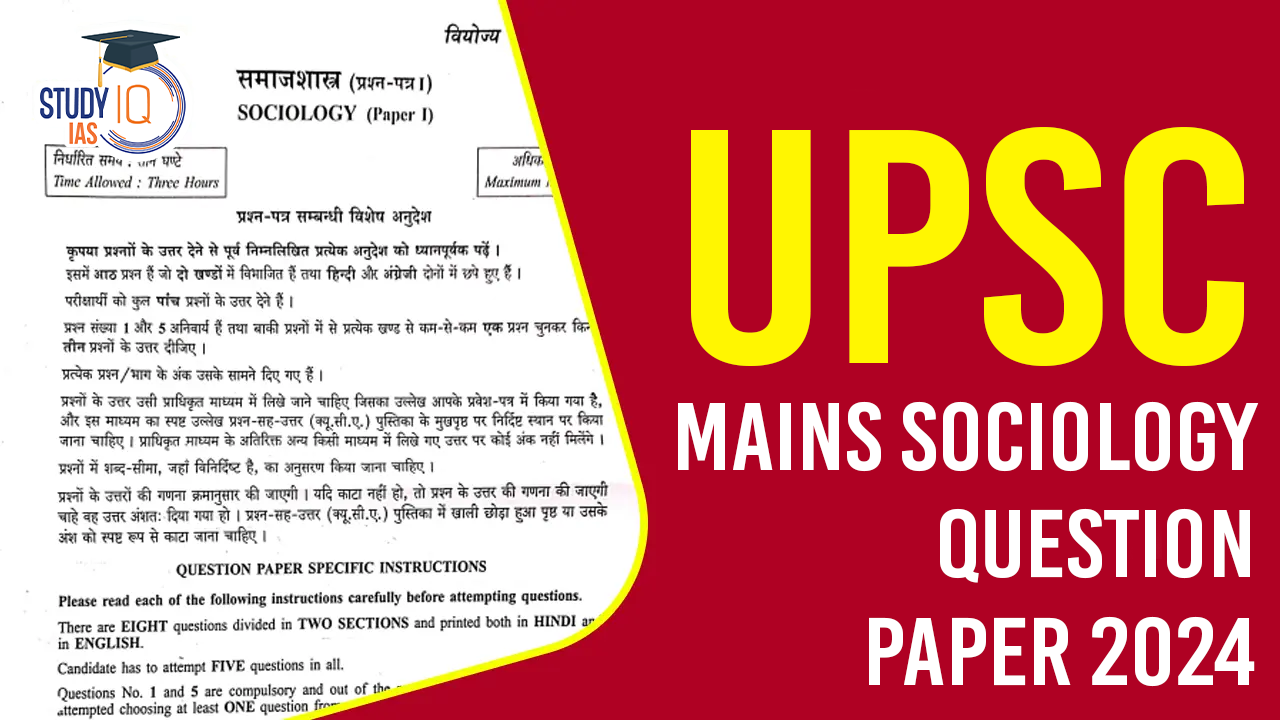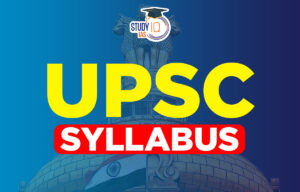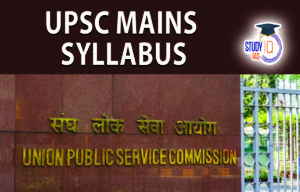Table of Contents
UPSC Sociology Optional Paper 2024 was conducted on 29 September 2024, in the morning and evening shifts by UPSC. Sociology is one of the optional subjects among the 48 subjects. It comprises 2 papers, Paper I and Paper II, each with 250 marks, totaling 500. Aspirants who have Opted Sociology as optional in the UPSC Exam can check the UPSC Mains Sociology Question Paper 2024 PDF in this article.
UPSC Sociology Optional Paper 2024
The Sociology optional paper consists of two papers—Paper I and Paper II, each carrying 250 marks for a total of 500 marks. Sociology has emerged as a popular optional subject among candidates preparing for the UPSC Civil Services Exam. This trend can be attributed to several factors that make Sociology not only accessible but also relevant to the contemporary socio-political landscape. Here’s a brief overview:
| Particulars | Details |
| Exam Name | UPSC Civil Services Exam |
| Optional Papers in UPSC Mains Exam | 2 Papers |
| Optional Paper I | Sociology Optional Paper-I |
| Optional Paper II | Sociology Optional Paper-II |
| Optional Weightage | 25% of the total marks of the Written Exam and Personality Test |
| Total Optional Subjects in the UPSC CSE Exam | 48 Subjects |
| Sociology Optional | Sociology Optional Paper-I and Paper-II |
| Total Marks in Optional | 500 Marks (250 marks each) |
UPSC Sociology 2024 Paper Download PDF
The UPSC Sociology 2024 question papers will be released by the Union Public Service Commission shortly after the exam. Candidates can expect to access both Paper I and Paper II in PDF format directly from the official UPSC website. You can also Download UPSC Sociology 2024 question papers PDF from Link Below:
| Question Paper | Download PDF |
| UPSC Sociology Optional Paper-I | Click Here |
| UPSC Sociology Optional Paper-II | Click Here |
How to Download UPSC Sociology 2024 Question Papers?
- Visit UPSC Website: Go to www.upsc.gov.in.
- Examinations Section: Click on the ‘Examinations’ tab in the main menu.
- Previous Year Papers: Select ‘Previous Year Papers’ or relevant links for the Civil Services Examination.
- Locate Sociology Papers: Find links for UPSC Sociology 2024 Paper I and Paper II.
- Download PDFs: Click on the links to open and download the question papers.
- Save and Analyze: Save the PDFs for review and analysis for exam preparation.


 NCERT Books for UPSC Preparation, Check ...
NCERT Books for UPSC Preparation, Check ...
 UPSC Syllabus 2025, Check UPSC CSE Sylla...
UPSC Syllabus 2025, Check UPSC CSE Sylla...
 UPSC Mains Syllabus 2025, Optional Sylla...
UPSC Mains Syllabus 2025, Optional Sylla...





















